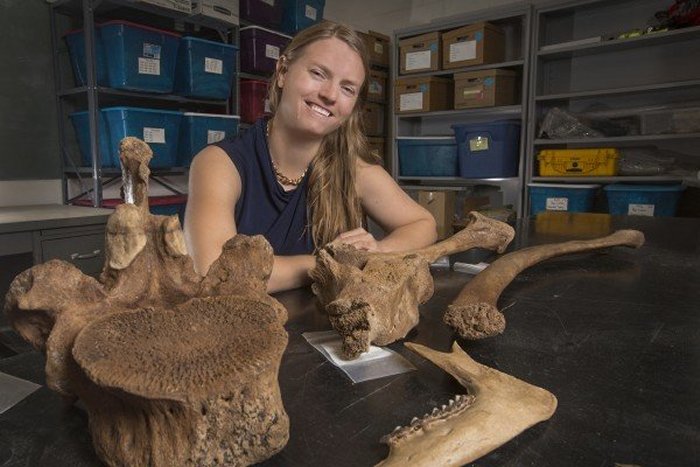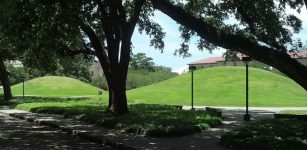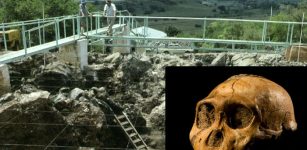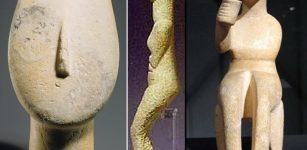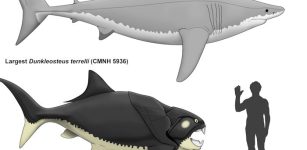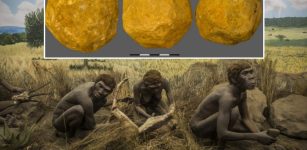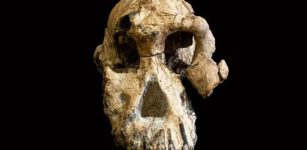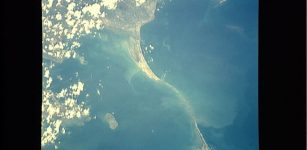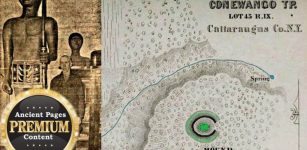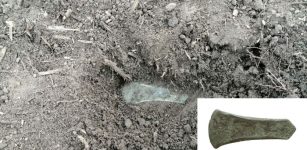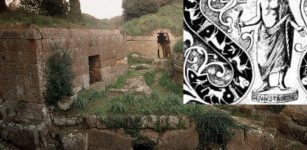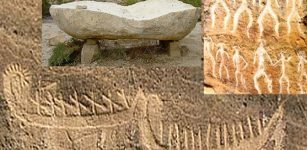Artifacts Discovered In Ancient Florida Sinkhole Can Re-Write History Of North America
AncientPages.com - Florida is once again revealing more of its ancient secrets. Archaeologists have discovered 14,500 year-old artifacts in an ancient sinkhole in Florida. The finding could re-write history of North America, because it shows that humans settled the southeastern United States as much as 1,500 years earlier than scientists previously believed.
The 14,500 year-old site on the Aucilla River, not far from Tallahassee is now the oldest known site of human life in the southeastern United States.
There is a cluster of sites all over North America that date to around 13,200 years old, but there are only about five in all of North and South America that are older.
The site was named after Buddy Page, a diver who first brought the site to the attention of archaeologists in the 1980s. In the 1980s and 1990s, researchers James Dunbar and David Webb investigated the site and retrieved several stone tools and a mastodon tusk with cut marks from a tool in a layer more than 14,000 years old. The new findings now confirm claims made more than a decade ago.
Neil Puckett, a PhD student from Texas A&M University involved in the excavations, surfaces with the limb bone of a juvenile mastodon. Image credit: Brendan Fenerty
So why didn’t we investigate this particular site sooner? Simply, because it was a period in our history when such an old date was widely considered impossible, other experts disputed the evidence, said Mike Waters of Texas A&M University in College Station.
The sinkhole was "just politely ignored," he said.
FSU Assistant Professor Jessi Halligan is the lead researcher on the project. During the diver, they recovered many mastodon and llama bones. Credit: Bruce Palmer/Florida Sta
The sinkhole is nearly 200 feet wide. In ancient times, it had a shallow pond at the bottom. That offered fresh water and a gathering point for animals, which "probably would have been easy pickings" for hunters who saw them trapped in the deep depression, Waters said.
See also:
Secrets Of Mysterious Lost Kingdom Of Calusa In Florida And The Shell Indians
Luna Settlement: First Multi-Year European Settlement Identified In Pensacola, Florida
Today, the sinkhole is filled with about 30 feet of water, and it took divers equipped with head-mounted lights to look for artifacts. It was "as dark as the inside of a cow, literally no light at all," said Jessi Halligan, the lead diving scientist and an assistant professor of anthropology at Florida State University in Tallahassee.
Stone knife and other artifacts found deep underwater in a Florida sinkhole show people lived in that area some 14,500 years ago. Image credit: FSU
Using the latest radiocarbon dating techniques, researchers found all artifacts dated about 14,550 years ago. One of the artifacts was a stone knife.
"The day we found that artifact we were really excited because there's absolutely no way that stone knife wasn't made by people," Halligan said.
Prior to this discovery, scientists believed a group of people called Clovis -- considered among the first inhabitants of the Americas -- settled the area about 13,200 years ago.
"The new discoveries at Page-Ladson show that people were living in the Gulf Coast area much earlier than believed," Waters said.
“It's pretty exciting. We thought we knew the answers to how and when we got here, but now the story is changing," Halligan added.
AncientPages.com


